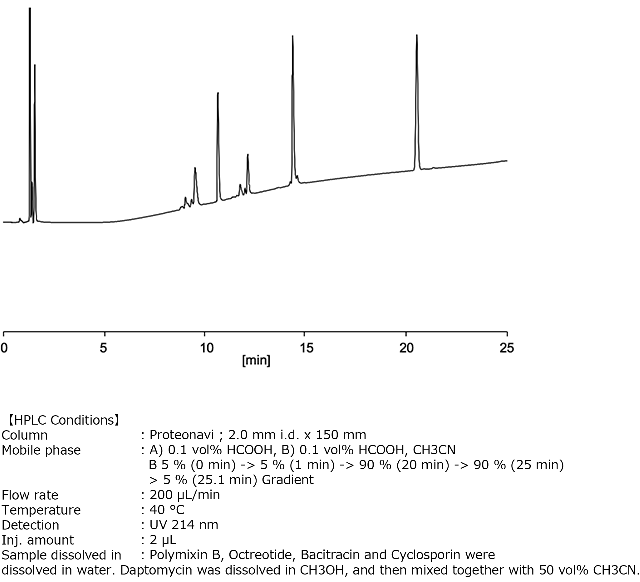- HOME
- Products
- HPLC Columns
- Proteonavi
For analytical and preparative PROTEIN separation.
- Excellent acidic durability!
- Minimal protein adsorption! Minimum sample loss!
- Low bleed fitting for MS analysis!
- Easy to shift from analytical to preparative size!
Adsorption to a stationary phase is one of the most common limiting factors in protein separation in reversed-phase mode. It is generally understood that the irreversible adsorption is caused by denaturing of protein in the hydrophobic phase or a coulombic interaction with silica, a chromatographic support. Proteonavi has overcome the problem by introducing the short four- carbon structure on the silica surface with a unique chemistry. Its synthetic process has already been established for even large industrial-scale purification.
Outstanding Acid Durability
Acidic hydrolysis is the major cause of loss in performance in reversed phase. Proteonavi’s durability under acidic conditions was proven by the accelerated test using 1vol% of trifluoroacetic acid (TFA), a concentration one order of magnitude higher than those used for mobile phases for common protein separations.
Sequence of process:
After thermal equilibration of column, start the pump. Sixty minutes later, run the sample and record its retention time. Repeat the sequence in every 60 minutes and observe the loss of retention. (For HPLC condition, see below.)
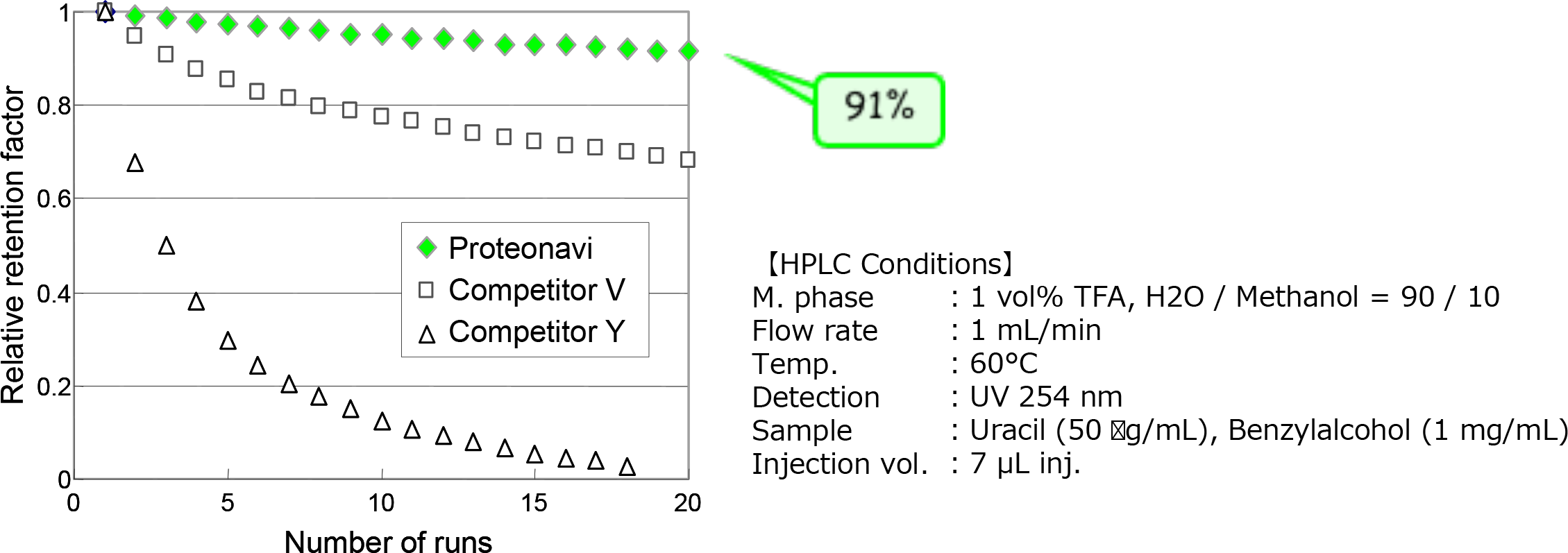
Specific Retention for Proteins
While their retention times of small neutral compounds are supposed to be correlated to amount or length of alkyl chains of stationary phase, that of protein is, in general, governed not only by hydrophobic interaction, but by hydrophilic or ionic interactions. Proteonavi is designed to show large retention specifically for proteins, by precisely controlling its synthetic process.
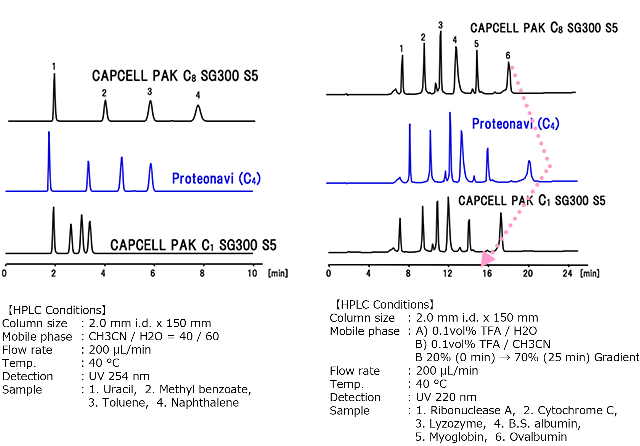
Minimal Lot Variation
Lot-to-lot variation in separation is often discussed in protein analysis. Proteonavi’s silica support and its synthetic procedure are precisely controlled to minimize it.
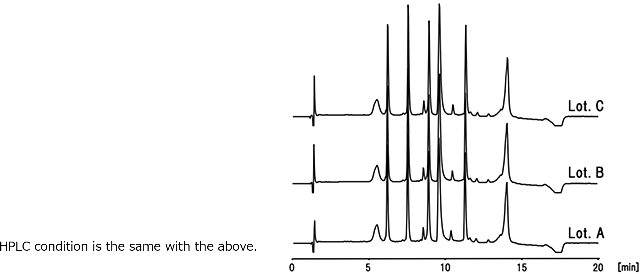
Reduced Column Bleed
Total ion chromatograms in LC-MS were compared among competitor’s columns under validated gradient conditions. Proteonavi showed the least column bleed, and is expected to provide high purification efficiency in preparative applications, as well as a high sensitivity in LC-MS.
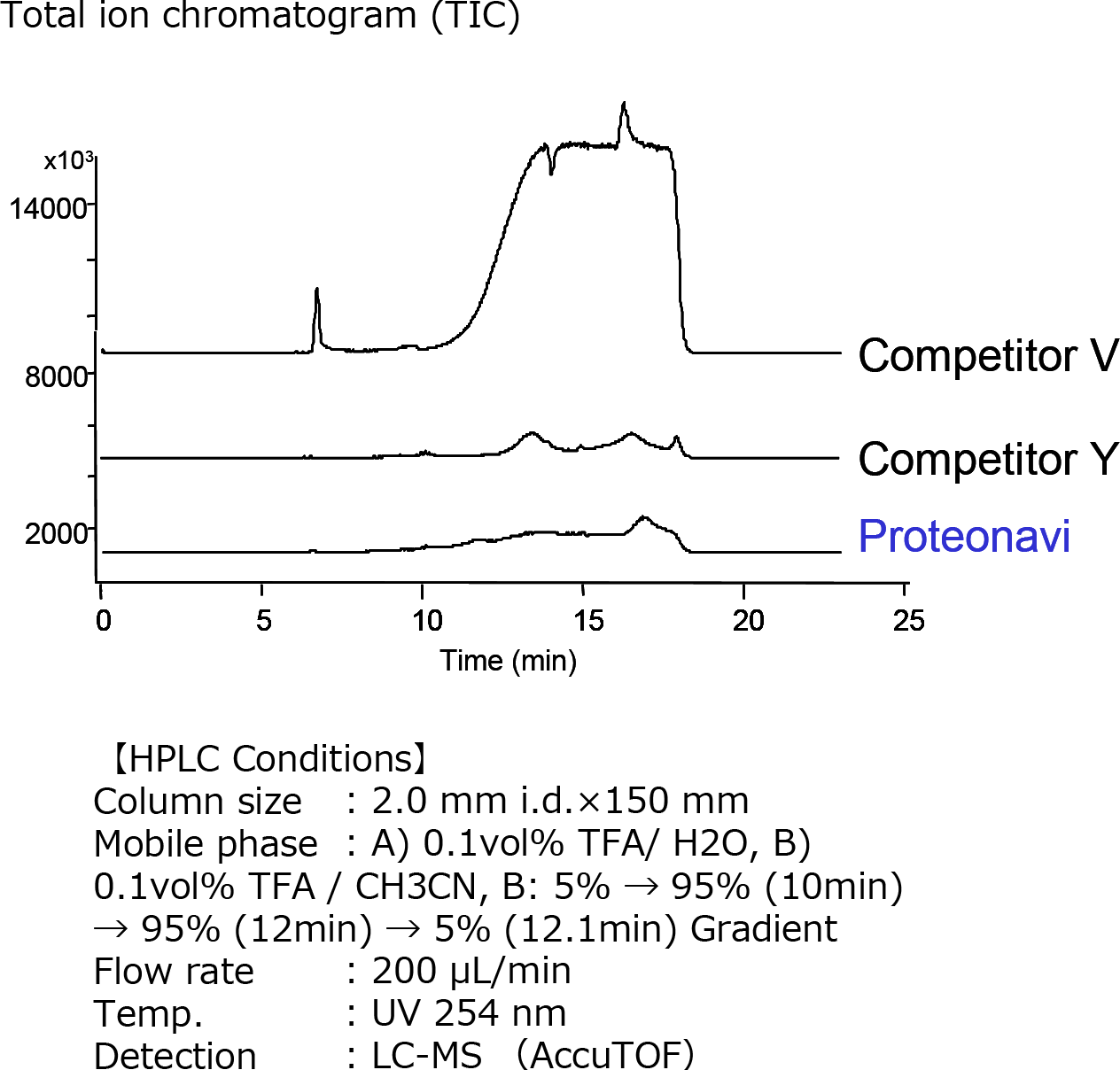
Application 1.: INSULIN
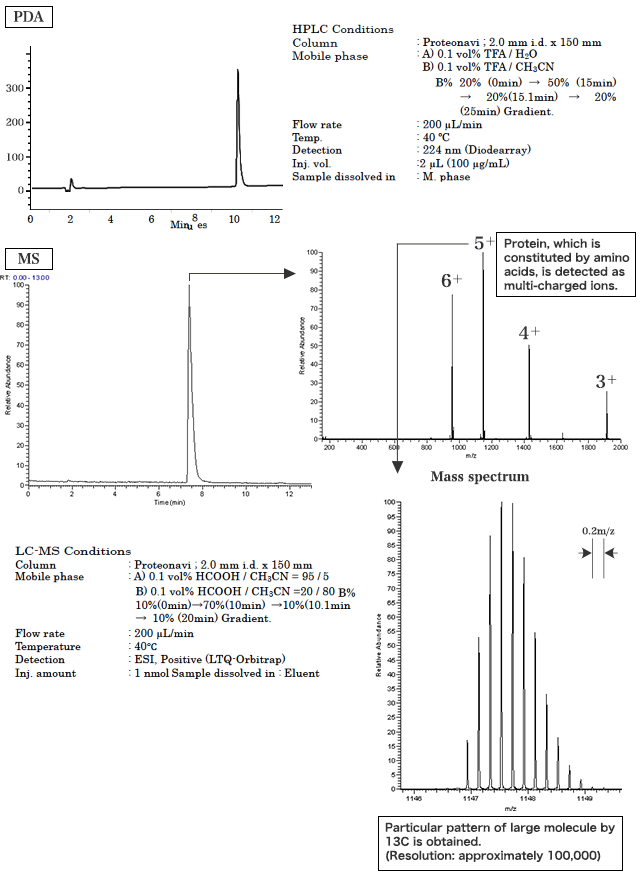
Application 2.: Cyclic peptides
